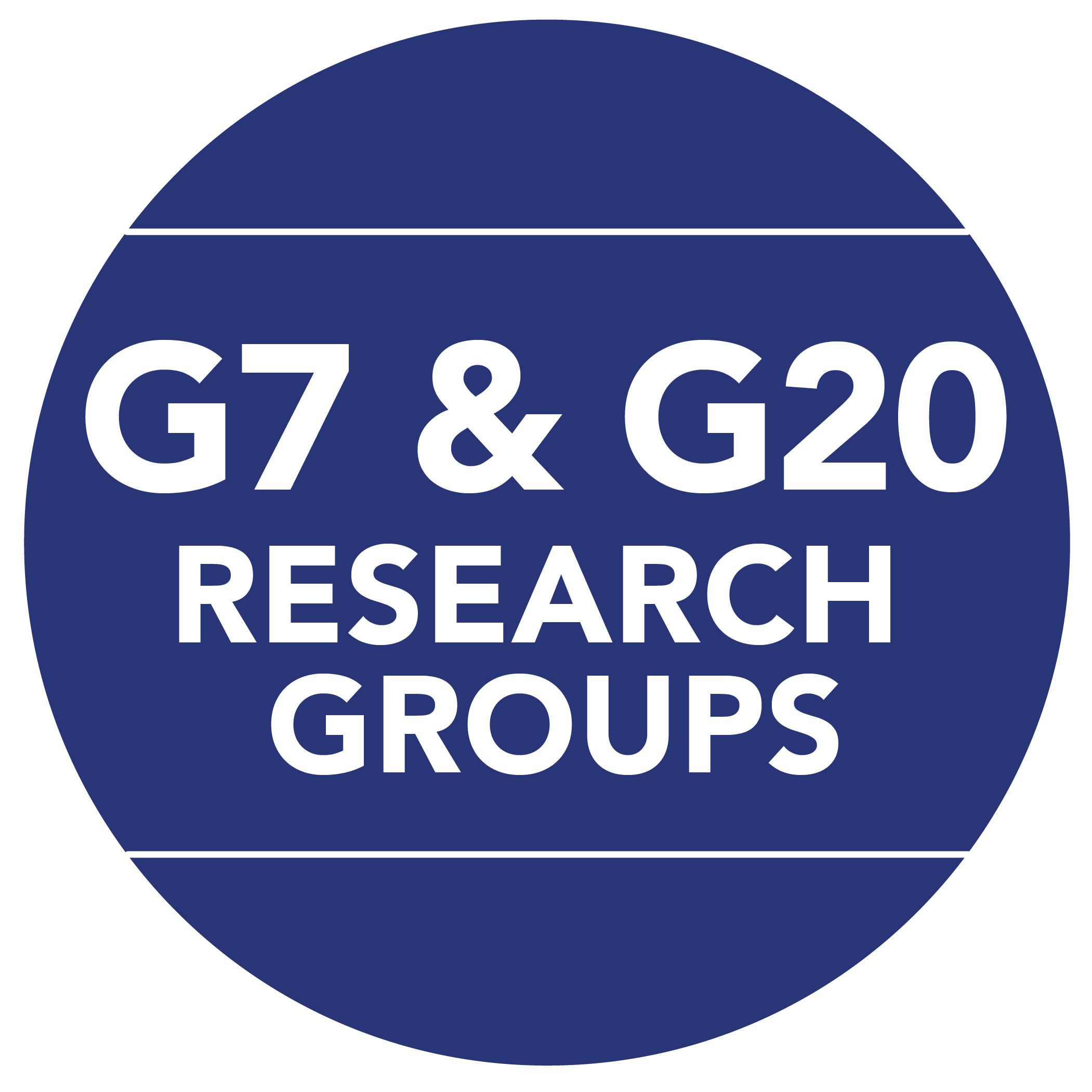

 |
 |
|
Committed to Resilience: G7 Foreign Ministers' Commitments on Counter-Terrorism in 2017
Mary Zelenova and John Kirton, G7 Research Group
April 23, 2018
Just as G7 foreign and security ministers began their meeting in downtown Toronto on April 23, 2018, a tragic event in the north of the city killed 10 civilians and injured another 15. Whatever the motives for the tragedy in Toronto, which are still unknown as we write, the shock immediately raised questions of what the foreign and security ministers could do to counter such threat to the safety of their citizens in their lives.
The event underscored the wisdom of the Canadian government in having the G7 foreign ministers meet not by themselves, as they usually did in the past, but together with their ministers responsible for security and public safety and to do so, not simply in back-to-back sessions, but with an overlapping meeting of both in the middle to discuss shared human security threats. It also enabled the ministers to build on the firm foundation of counter-terrorist commitments that G7 foreign ministers made at their stand-alone meeting in Lucca, Italy, in April 2017.
At Lucca, the G7 foreign ministers made 45 commitments on counter-terrorism. Several more commitments on peace and security included a clear link to terrorism. In the preamble of their 2017 communiqué, the leaders pledged to "coordinate [their] efforts in promoting the rules-based international order, tackling terrorism and violent extremism, [and to] promote stability, inclusion and prosperity." The first section, entitled "Countering Terrorism and Violent Extremism," underscored the importance placed on making unified and coordinated commitments. The second section, entitled "ISIL-Da'esh/Syria/Iraq," articulated the G7's partnership with the Global Coalition to Counter ISIL/Da'esh to tackle the threats, crimes and abuses in territories held by ISIL/DA'esh. There was a strong emphasis on the priorities of unity and cooperation in addressing terrorism.
G7 foreign ministers are dedicated to upholding the values of democracy, fundamental freedoms and human rights. This was expressed at Lucca as follows:
Furthermore, terrorism commitments underline the pledge to address threats to international peace and security in a unified and coordinated manner. In this vein, they reflect several determinants of terrorist regimes, and identify the pressing need for coordination in tackling terrorist threat and abuses:
Although the details of the North York attack remain unknown, there are some common patterns between the nature of the attack and the commitments made at Lucca. At the 2017 meeting, foreign ministers pledged to "continue to seek to enhance cooperation between law enforcement and criminal justice authorities, as well as partnership with the private sector and civil society in fighting transnational organized crime, particularly that which directly supports or facilitates terrorism." At Lucca, foreign ministers underscored the importance of international cooperation and resilience as an imperative strategy for taking steps toward a more safe and peaceful global order. G7 discussions on the topic of terrorism have consistently produced strong, results-oriented and versatile commitments, reflecting the importance of close cooperation between foreign and security ministers.
 Mary Zelenova is a political science student at Victoria College in the University of Toronto, a researcher with the G7, G20 and BRICS Research Groups, and a research assistant for Professor John Kirton. Her research focuses on G7 and G20 peace and security issues. She is especially interested in regional security in Eastern Europe, nuclear non-proliferation and disarmament, and post-conflict peace building. Her work has been featured by the NATO Association of Canada and POLIS Undergraduate Research Journal. Follow her at @mary_zelenova. Mary Zelenova is a political science student at Victoria College in the University of Toronto, a researcher with the G7, G20 and BRICS Research Groups, and a research assistant for Professor John Kirton. Her research focuses on G7 and G20 peace and security issues. She is especially interested in regional security in Eastern Europe, nuclear non-proliferation and disarmament, and post-conflict peace building. Her work has been featured by the NATO Association of Canada and POLIS Undergraduate Research Journal. Follow her at @mary_zelenova. |
 John Kirton is director of the G7 Research Group, and co-director of the G20 Research Group, the Global Health Diplomacy Program and the BRICS Research Group, all based at Trinity College at the Munk School of Global Affairs at the University of Toronto. He is also a Non-resident Senior Fellow at the Chongyang Institute for Financial Studies at China's Renmin University. A professor of political science, he teaches global governance and international relations and Canadian foreign policy. His most recent books include Accountability for Effectiveness in Global Governance, co-edited with Marina Larionova (Routledge 2018), China's G20 Leadership (Routledge, 2016), G20 Governance for a Globalized World (Ashgate, 2012) and (with Ella Kokotsis), The Global Governance of Climate Change: G7, G20 and UN Leadership (Ashgate, 2015), as well as The G8-G20 Relationship in Global Governance, co-edited with Marina Larionova (Ashgate, 2015), and Moving Health Sovereignty in Africa: Disease, Govenance, Climate Change, co-edted with Andrew F. Cooper, Franklyn Lisk and Hany Besada (Ashgate, 2014). Kirton is also co-editor of several publications on the G7/8, the G20 and the BRICS published by Newsdesk Media. Follow him at @jjkirton. John Kirton is director of the G7 Research Group, and co-director of the G20 Research Group, the Global Health Diplomacy Program and the BRICS Research Group, all based at Trinity College at the Munk School of Global Affairs at the University of Toronto. He is also a Non-resident Senior Fellow at the Chongyang Institute for Financial Studies at China's Renmin University. A professor of political science, he teaches global governance and international relations and Canadian foreign policy. His most recent books include Accountability for Effectiveness in Global Governance, co-edited with Marina Larionova (Routledge 2018), China's G20 Leadership (Routledge, 2016), G20 Governance for a Globalized World (Ashgate, 2012) and (with Ella Kokotsis), The Global Governance of Climate Change: G7, G20 and UN Leadership (Ashgate, 2015), as well as The G8-G20 Relationship in Global Governance, co-edited with Marina Larionova (Ashgate, 2015), and Moving Health Sovereignty in Africa: Disease, Govenance, Climate Change, co-edted with Andrew F. Cooper, Franklyn Lisk and Hany Besada (Ashgate, 2014). Kirton is also co-editor of several publications on the G7/8, the G20 and the BRICS published by Newsdesk Media. Follow him at @jjkirton. |
|
This Information System is provided by the University of Toronto Library |
All contents copyright © 2024. University of Toronto unless otherwise stated. All rights reserved.